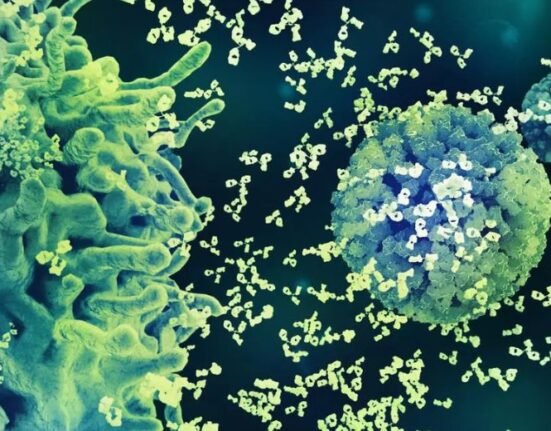HQ Team
August 6, 2024: Daiichi Sankyo will pay Merck & Co. Inc., $170 million upfront to bag commercialization and development rights of the latter’s test drug for small cell lung cancer, according to a joint statement.
Merck “has also satisfied a contingent quid obligation from the original collaboration agreement,” signed in October 2023. The New Jersey-based Merck had bought the investigational drug from Harpoon Therapeutics earlier this year.
The companies will share research, development and commercialization expenses as well as profits worldwide, except for Japan where Merck will retain exclusive rights and Daiichi Sankyo receives a royalty based on sales
The research and development expenses related to the drug named MK-6070 in combination with ifinatamab deruxtecan will be shared “in a manner consistent with the original agreement for ifinatamab deruxtecan.”
According to the October agreement, Merck would pay Daiichi Sankyo upfront payments of $1.5 billion for ifinatamab deruxtecan due upon execution, with a total potential consideration of $22 billion for three programs.
FDA rejection
In June 2024, the USFDA rejected a Biologics License Application from Daiichi Sankyo and Merck & Co., seeking accelerated approval of patritumab deruxtecan to treat a type of lung cancer.
The US Food and Drug Administration issued a complete response letter to Daiichi and Merck & Co after results from “an inspection of a third-party manufacturing facility,” according to a Daiichi statement.
The FDA letter “did not identify any issues with the efficacy or safety data submitted.” A complete response letter issued by the FDA indicates that an application will not be approved in its present form.
Harpoon, a clinical-stage immunotherapy company, has developed a portfolio of novel T-cell engagers that employ the company’s protein technology to direct a patient’s immune cells to kill tumour cells.
T-cells are a type of white blood cell called lymphocytes. They help the human immune system fight germs and protect from diseases. Cytotoxic T-cells destroy infected cells. Helper T-cells send signals that direct other immune cells to fight infection.
Neuroendocrine tumours
Ifinatamab deruxtecan is also being evaluated for neuroendocrine tumours and is currently in mid-stage clinical trials.
“Expanding our oncology pipeline with a DLL3 T-cell engager further supports Daiichi Sankyo’s strategy to create new standards of care for patients with cancer worldwide,” said Ken Takeshita, MD, Global Head, R&D, Daiichi Sankyo.
He said the expanded deal will provide “potential synergies with our established antibody-drug conjugate collaboration, particularly ifinatamab deruxtecan.”
“Small cell lung cancer is an aggressive, fast-growing form of lung cancer and new treatment approaches are urgently needed,” said Dean Y. Li, MD, PhD, President, MSD Research Laboratories.
“We …look forward to evaluating the combination of MK-6070 and ifinatamab deruxtecan as a novel two-pronged approach targeting the underlying biology of small cell lung cancer along with other forms of cancer.”
Notch inhibitory ligands
Delta-like ligand 3 (DLL3), a Notch inhibitory ligand, is highly expressed in small-cell lung cancer and other neuroendocrine tumours such as melanoma, small-cell bladder cancer and metastatic castration-resistant prostate cancer and is minimally expressed in normal tissues.
Notch inhibitory ligands are proteins that can prevent the Notch signalling pathway from being activated. Notch signalling is a way that cells communicate with each other. It helps control how cells grow, develop, and decide what type of cell they will become.
This process is crucial during development and in maintaining healthy tissues. If Notch signalling is not properly controlled, it can lead to issues such as uncontrolled cell growth, which is a hallmark of cancer.
DLL3 is a promising therapeutic target where multiple treatment approaches are being explored, according to the joint statement.
It is being evaluated as a monotherapy in certain patients with advanced cancers associated with the expression of DLL3 and in combination with atezolizumab in certain patients with small-celllung cancer.
The U.S. Food and Drug Administration granted Orphan Drug Designation to MK-6070 for the treatment of SCLC in March 2022.








